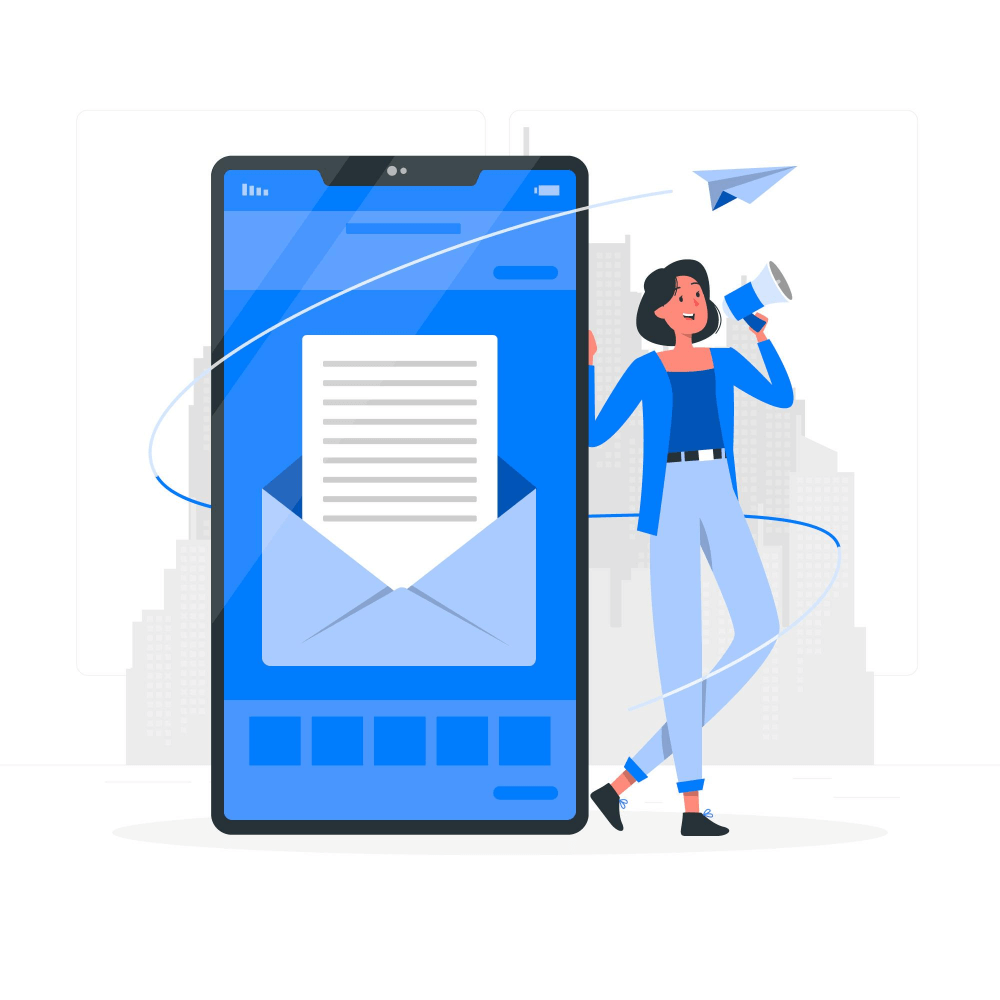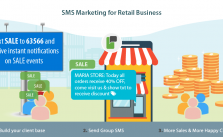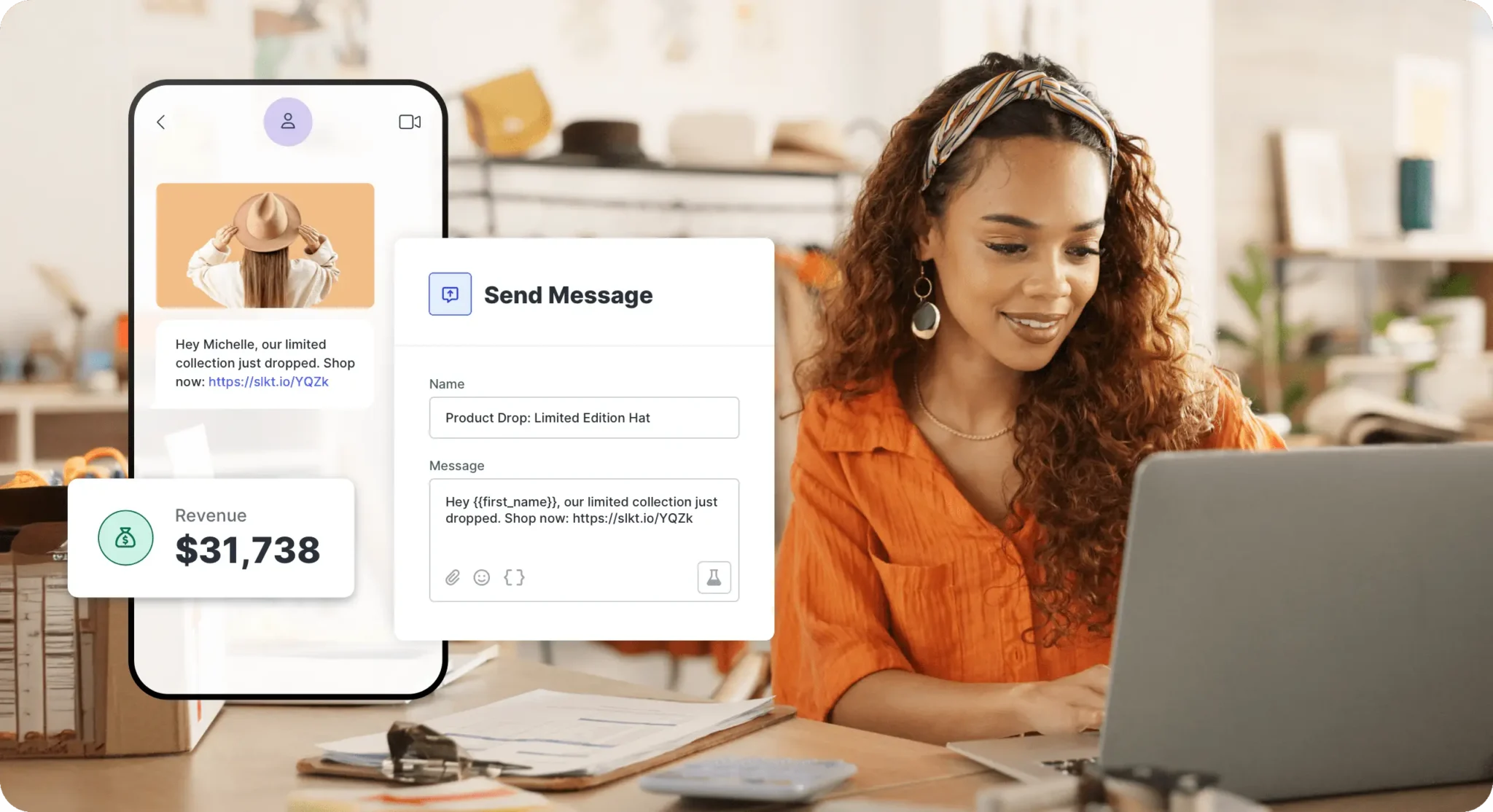Table of Contents
- What is AI-powered personalization?
- Why Personalization Matters in Marketing
- How AI Processes Customer Data and Behavior for Personalization
- The Role of AI in Scaling Text and Email Marketing
- How AI-Powered Personalization Boosts Engagement and Conversions
- Best Practices for Implementing AI-Powered Personalization
- Key AI Tools and Technologies Used in Text and Email Marketing
Marketing is more competitive than ever, and personalization is no longer optional. To stand out, brands must deliver relevant and timely content. But with thousands of customers, how can businesses scale personalization for text and email marketing?
This is where AI-powered personalization steps in. AI allows companies to automate personalized content at Scale, using data to craft highly targeted messages for each customer. Whether through SMS or email, AI enables brands to send the right message to the right person at the perfect time.
This blog will explore how AI revolutionizes text and email marketing, helping businesses personalize at Scale, boost engagement, and drive conversions.

What is AI-powered personalization?
AI-powered personalization refers to the use of artificial intelligence (AI) to customize marketing content and communications (such as emails and text messages) to individual customers based on their behavior, preferences, and past interactions. By leveraging AI technologies, businesses can create highly relevant, personalized experiences at scale, optimizing engagement and driving better outcomes like higher conversion rates and customer satisfaction.
Definition and Explanation of AI in Marketing
In marketing, AI refers to the use of machine learning algorithms, data analysis, and automation tools to make sense of customer behavior and preferences, enabling more efficient and personalized interactions. AI analyzes vast amounts of data, learns patterns, and applies insights to create personalized marketing strategies. It helps marketers automate repetitive tasks, optimize content, and deliver targeted campaigns without needing manual intervention for each customer.
AI allows marketers to predict customer behavior, make real-time decisions, and create dynamic content that feels personalized and timely to the customer. This approach dramatically enhances the customer experience, leading to deeper relationships with brands and increased ROI for marketers.
Why Personalization Matters in Marketing
Consumers today expect brands to know their preferences. Generic messages no longer cut it. Personalization makes customers feel valued and understood, which, in turn, increases engagement. Research shows that personalized emails have 29% higher open rates, and SMS messages with customized content get much higher click-through rates than standard messages.
Yet, delivering personalized content manually is impossible for larger audiences. Here’s where AI comes into play. AI can analyze data at a scale that humans can’t, allowing marketers to create customized experiences relevant to everyone.
How AI Processes Customer Data and Behavior for Personalization
AI processes customer data through several key steps to deliver personalized content:
- Data Collection: AI gathers data from multiple sources such as website interactions, purchase history, email clicks, social media engagement, and CRM systems.
- Data Analysis: AI uses algorithms to analyze customer behavior patterns, preferences, and demographic information. It identifies trends, such as frequently purchased items or peak interaction times.
- Segmentation: Based on the analysis, AI groups customers into distinct segments. AI-driven segmentation is more precise than traditional methods, considering factors like purchase history, browsing patterns, and even sentiment.
- Personalization: AI generates personalized recommendations, tailored content, or custom offers based on the insights gained. It may create customized email subject lines, product recommendations, or text messages that address each customer’s specific needs or interests.
- Continuous Learning: AI systems continue to learn from new data, refining and improving the accuracy of predictions and personalizations over time. This allows marketers to optimize their campaigns continuously.
The Role of AI in Scaling Text and Email Marketing
AI is critical in scaling personalized marketing efforts across text and email channels.
1. Data-Driven Personalization
AI thrives on data. It can build a customer profile in real-time by analyzing customer behavior, purchase history, browsing patterns, and even time spent on specific web pages. This data forms the foundation for hyper-targeted messaging, enabling marketers to send emails or texts that feel personal to each recipient.
For example, if a customer frequently browses outdoor gear but hasn’t purchased it yet, AI can automatically send them a personalized offer on camping equipment. Or, AI might trigger a reminder SMS if a customer abandons their cart after shopping online.
The power of AI lies in its ability to learn from past behavior. The more data it collects, the better it predicts what customers want next.
2. Dynamic Content Creation
One of the most compelling aspects of AI in marketing is its ability to generate dynamic content. With AI, businesses can automatically create personalized subject lines, product recommendations, and even body copy for email or SMS campaigns.
For instance, an email subject line could change based on the recipient’s behavior: “John, did you forget something in your cart?” or “Special Offer Just for You, Sarah!” AI can create content that speaks directly to each customer, significantly increasing their engagement chances.
3. Timing Optimization
Knowing when to send a message is as important as the content itself. AI helps optimize timing by analyzing when customers are most active. It uses historical data to predict the best times to send text messages or emails.
For example, AI might discover that one customer tends to open emails around lunchtime while another prefers late-night shopping. With this knowledge, businesses can automate their campaigns to reach the inbox or phone at the perfect moment, maximizing engagement.
4. Automating Workflows for Scale
AI also allows companies to scale their marketing efforts without overwhelming their teams. AI-powered automation tools enable marketers to set up workflows that trigger personalized messages at different customer journey stages.
For example, when new subscribers sign up for a newsletter, AI can send them a personalized welcome email. If they abandon a cart, AI can trigger follow-up emails or texts to remind them of their purchase. These workflows run automatically, ensuring customers receive the right message without manual effort.
How AI-Powered Personalization Boosts Engagement and Conversions
AI-driven marketing directly impacts key performance metrics such as engagement and conversion rates.
1. Increasing Email Open and Click-Through Rates
AI-powered personalization can dramatically improve email open rates. By crafting personalized subject lines, AI makes customers feel the message is tailored just for them. Studies show that emails with personalized subject lines are 26% more likely to be opened.
Additionally, AI can recommend products based on past purchases or browsing habits, making the content more engaging. For example, a beauty retailer can email personalized skincare recommendations based on the customer’s previous purchases, leading to higher click-through rates.
2. Driving Conversions Through SMS Marketing
AI-driven personalization is equally effective for SMS marketing. With open rates as high as 98%, SMS is a direct way to reach customers. However, generic messages don’t convert as well as personalized ones.
AI allows businesses to send targeted messages, whether it’s a special discount, a product recommendation, or an abandoned cart reminder. For example, an AI-powered SMS could read, “Hi [Customer Name], we noticed you’re eyeing our new shoes. Here’s 10% off just for you!” This level of personalization makes customers more likely to take action.
3. Reducing Unsubscribe Rates
One of the challenges with marketing, especially email, is keeping subscribers engaged over time. If customers feel bombarded with irrelevant content, they’ll likely unsubscribe. AI reduces this risk by ensuring that each message is highly relevant.
For instance, if a customer usually buys athletic wear, AI ensures they only receive emails or texts related to their interests, keeping them engaged and less likely to hit the unsubscribe button.
Best Practices for Implementing AI-Powered Personalization
Businesses should follow these best practices to get the most out of AI-driven personalization.
1. Start Small, Then Scale
If you’re new to AI-driven personalization, start by automating smaller campaigns like cart abandonment reminders or product recommendations. Once you see success, expand your efforts to include larger campaigns like seasonal promotions or loyalty programs.
2. Leverage Customer Data Ethically
AI relies heavily on data, so collecting, storing, and using customer data ethically is crucial. Always be transparent about collecting information and allowing customers to opt-out. Privacy should remain a top priority, especially with the growing concerns around data security.
3. Regularly Optimize and Test Campaigns
AI gets smarter over time, but it still requires some fine-tuning. Regularly test different elements of your campaigns, such as subject lines, message frequency, and timing, to optimize performance. Use A/B testing to see what works best and refine your strategy as you go.
4. Personalize Beyond Just Names
While addressing customers by name is important, true personalization goes much deeper. Use AI to personalize the entire message based on customer preferences, past interactions, and behavior. Personalization that aligns with customer needs leads to higher engagement and loyalty.
Key AI Tools and Technologies Used in Text and Email Marketing
- Machine Learning: Machine learning algorithms are at the core of AI-powered personalization. They allow systems to learn from data, identify patterns, and make predictions. In marketing, machine learning helps determine which products or content a customer might be interested in based on past behavior.
- Natural Language Processing (NLP): NLP enables AI to understand and generate human language. In marketing, NLP helps analyze customer messages, reviews, and interactions to gain insights into sentiment and preferences. It also allows AI to craft personalized email subject lines or text messages that feel natural and conversational.
- Predictive Analytics: Predictive analytics uses historical data and machine learning to forecast future customer behavior. Marketers can use predictive models to anticipate the likelihood of a customer making a purchase, opening an email, or clicking a link, enabling them to target the right message at the right time.
- Personalization Engines: Personalization engines are AI-powered platforms that aggregate data from various sources and use machine learning to create personalized experiences. These tools automatically adjust content, offers, or messages to fit each customer’s preferences and behavior, often in real time.
- Automation Platforms: Mailchimp, HubSpot, or Salesforce leverage AI to automate personalized email and SMS marketing. These tools help marketers segment audiences, personalize content, and schedule communications, all while optimizing for performance.
- Recommendation Engines: AI-driven recommendation engines analyze a customer’s browsing history, purchase behavior, and preferences to suggest relevant products or content. These engines are commonly used in email marketing to recommend products or services that align with customers’ interests.
Final Thought
AI-powered personalization has transformed the way businesses approach text and email marketing. By leveraging AI, companies can deliver highly personalized, targeted messages at Scale, boosting engagement and driving conversions. From crafting dynamic content to automating workflows and optimizing timing, AI allows marketers to reach customers precisely.
For brands looking to stay competitive in a crowded digital landscape, AI-powered personalization is no longer a nice-to-have—it’s a must. Start integrating AI into your text and email marketing strategies today and experience the impact of hyper-personalized campaigns.






